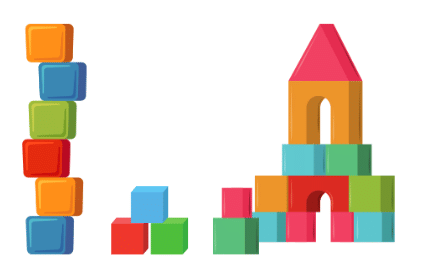Notes: Measuring Units | Mathematics Olympiad for Class 1 PDF Download
let's imagine you have a bunch of building blocks. Each block is a bit different in size, right? Now, let's say you want to tell your friend how tall the tower of blocks is. That's where units and measuring come in!

Units are like special words or labels we use to talk about the size or amount of something. Just like how we use words like "inch" or "centimeter" when talking about length, or "gram" or "kilogram" when talking about weight.
Now, why do we need to measure things? Well, measuring helps us understand and compare stuff. Imagine baking cookies – you need to measure ingredients like flour and sugar to make sure you get the yummy cookies just right! Or think about building a bookshelf – measuring helps make sure all the parts fit together perfectly.

So, units and measuring are like the tools we use to understand how big or small, heavy or light, or how much of something we have. It helps us communicate and make things just the way we want them!
Understanding measuring units is crucial for making sense of sizes, quantities, and comparisons. Here are some basic measuring units commonly used:
Length:
Meter (m): A unit to measure length. For example, the length of a table or a room.
Centimeter (cm): Smaller than a meter. Used for shorter lengths, like the width of a book.

Weight:
Gram (g): A unit for measuring weight. For instance, the weight of an apple.
Kilogram (kg): Larger than a gram. Used for heavier items, like the weight of a person.

Capacity:
Liter (L): A unit for measuring capacity. For example, the amount of water in a bottle.
Milliliter (ml): Smaller than a liter. Used for smaller amounts, like the capacity of a medicine dropper.

|
29 videos|109 docs|65 tests
|
FAQs on Notes: Measuring Units - Mathematics Olympiad for Class 1
| 1. What are measuring units? |  |
| 2. How are measuring units important in Olympiad exams? |  |
| 3. Can you provide examples of commonly used measuring units? |  |
| 4. What is the significance of using the correct measuring unit in calculations? |  |
| 5. How can I improve my understanding of measuring units for the Olympiad? |  |
















